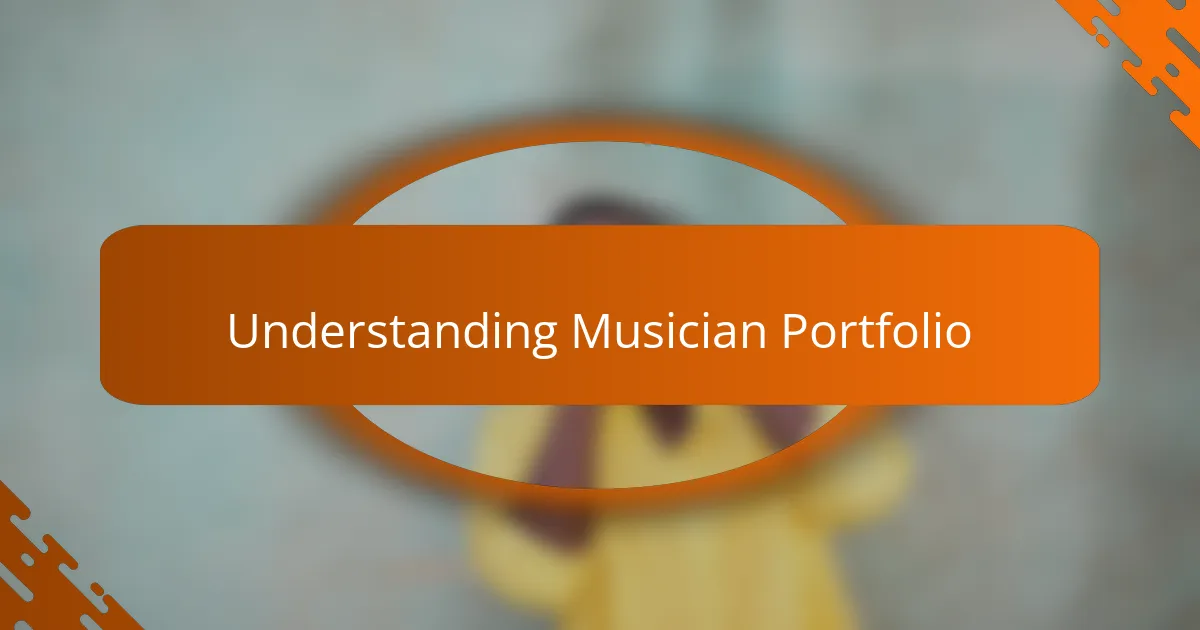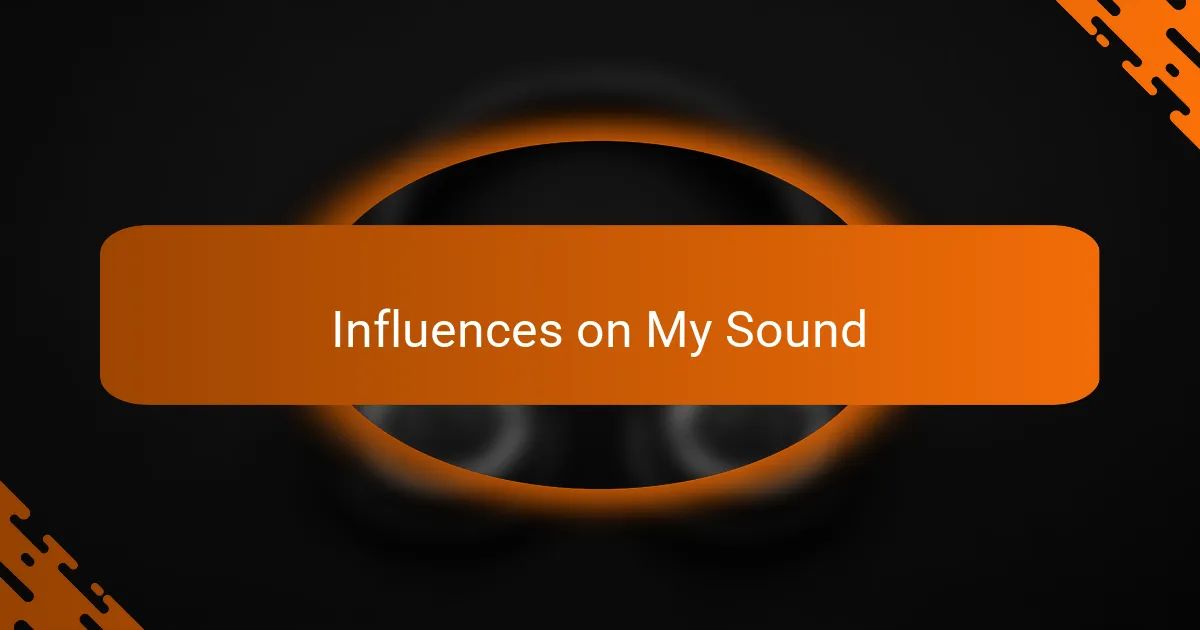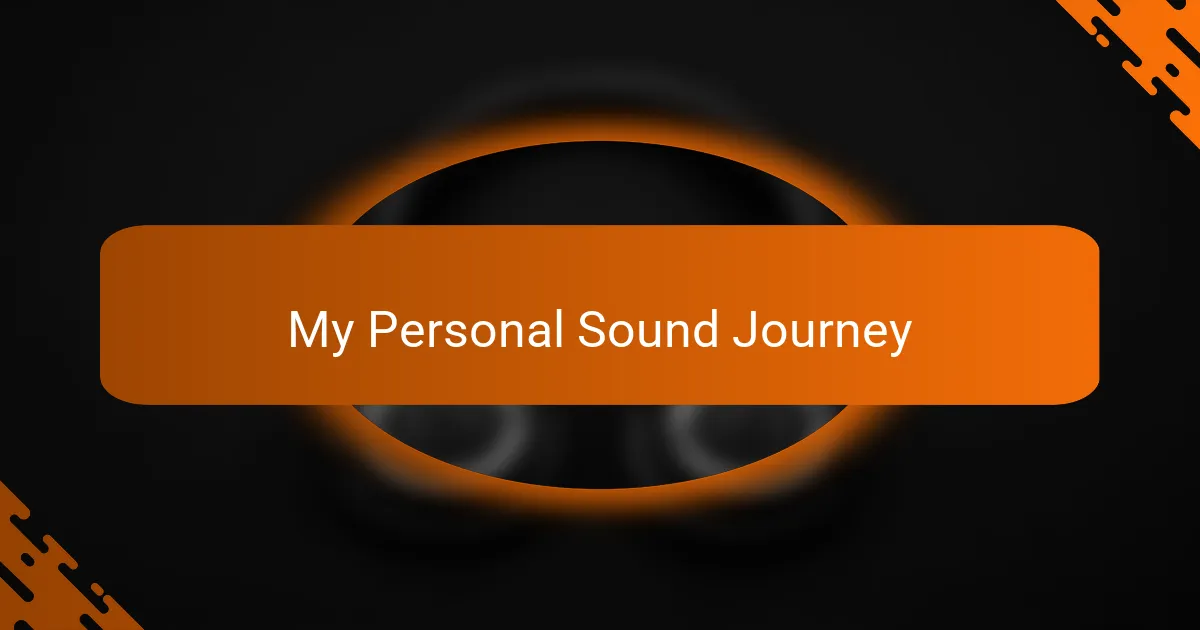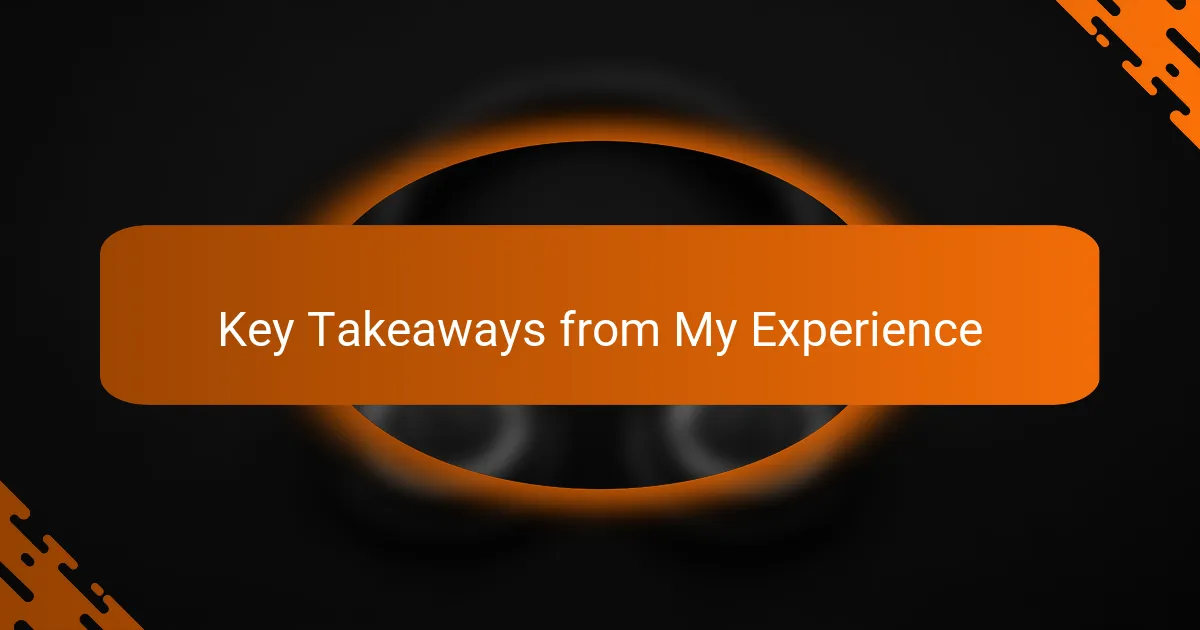Key takeaways
- Experimentation is vital for discovering a unique sound; trying new genres and instruments can lead to unexpected creativity.
- Emotional expression through personal experiences enriches music and fosters deeper connections with the audience.
- Collaboration and feedback from fellow musicians provide fresh perspectives and aid in artistic growth.
- Patience and persistence are essential; every failed attempt contributes to the journey of developing a distinctive musical identity.

Understanding Musician Portfolio
A musician portfolio is much more than just a collection of songs; it’s a reflection of who you are as an artist. I remember when I first started crafting mine, I felt both excited and vulnerable. How could I capture my essence in just a few tracks and images?
It’s essential to showcase not only your best work but also the diversity of your talent. In my case, I included different genres and styles to demonstrate my versatility. By doing this, I was able to connect with a broader audience, and it was incredible to see people resonate with the varied facets of my music.
When I look back, I realize how important storytelling is in a musician portfolio. Each piece I included held a story—a glimpse into my journey, struggles, and triumphs. What stories do your songs tell? Sharing those narratives through thoughtful selections can truly make your portfolio stand out and connect with listeners on a deeper level.

Importance of Unique Sound
Having a unique sound is crucial in today’s saturated music landscape. It sets you apart and allows listeners to connect with your music on a deeper level. From my experience, the moment I embraced my individual style, I noticed a significant increase in engagement with my audience. It’s truly rewarding to see how authenticity resonates with listeners.
When I first started creating music, I tried to imitate my favorite artists. However, I found that my best work arose when I infused my personal experiences and emotions into my sound. This reflection made my music not just a collection of notes, but a story that others could relate to.
The way I see it, a unique sound is not just about technical skill; it’s also about expressing who you are. It encourages creativity, deepens connections, and ultimately, allows us to contribute something special to the world.
| Aspect | Unique Sound |
|---|---|
| Connection with Audience | Deep emotional resonance |
| Creativity | Fosters innovative expression |
| Market Differentiation | Stands out among artists |
| Longevity | Builds a lasting legacy |

Elements of a Unique Sound
Developing a unique sound is like curating a personal fingerprint in music. For me, it involved experimenting with different genres and instruments, weaving together elements that felt authentic. I remember the first time I fused jazz rhythms with folk melodies; it felt like I was singing my own truth.
One key element is emotional expression. I believe that sharing personal experiences through lyrics or melody creates a connection with listeners. When I write about my struggles or triumphs, it’s as if I’m inviting others into my journey, which enriches my sound.
Another critical aspect is my choice of instrumentation. I often blend traditional acoustic sounds with electronic elements. This mix not only sets me apart but also reflects my diverse musical influences. It’s a constant evolution that keeps my music fresh and original.
| Element | Description |
|---|---|
| Emotional Expression | Using personal experiences to connect with the audience. |
| Instrumentation | Blending acoustic and electronic sounds for originality. |
| Genre Fusion | Combining different styles to create a unique musical identity. |

Techniques for Sound Development
When it comes to developing my unique sound, experimentation has been key. I often spent hours trying out different instruments and effects, which sometimes led to unexpected outcomes. One time, I layered a simple acoustic guitar track with an electronic beat—what emerged felt fresh and truly representative of my style.
Another technique I embraced was improvisation. I remember an entire evening spent jamming in my living room, where I went off-script and let my instincts guide me. It taught me that authenticity in music often comes from spontaneity and being true to oneself. Each session was like a little adventure; you never know what you might uncover.
Lastly, seeking feedback from fellow musicians has been invaluable. I realized that sharing my work with others opened up new perspectives and brought ideas I hadn’t considered. Whether it was a positive nod or a constructive critique, it all contributed to my growth.
| Technique | Description |
|---|---|
| Experimentation | Trying different instruments and effects to discover new sounds. |
| Improvisation | Playing spontaneously to reflect authenticity and emotion. |
| Feedback | Collaborating with other musicians to gain fresh insights and ideas. |

Influences on My Sound
When I think about the influences on my sound, a mix of genres instantly comes to mind. Growing up, I was surrounded by my parents’ eclectic music taste, from classic rock to soulful jazz. One particularly vivid memory is my dad blasting The Rolling Stones while cooking; those raw, gritty guitar riffs ignited a passion in me that I still channel in my music today.
Over the years, I’ve drawn inspiration from various artists, each adding a layer to my unique sound. Here’s a brief list of some key influences and their impact on my journey:
- The Beatles: Their songwriting structure and harmonies taught me the beauty of a well-crafted melody.
- Nina Simone: Her emotional depth and raw vulnerability inspired me to express my feelings authentically through lyrics.
- Jimi Hendrix: His innovative guitar techniques encouraged me to experiment with sound and push the boundaries of my playing.
- Fleetwood Mac: Their blend of pop and rock showed me how storytelling in music could resonate with listeners on a personal level.

My Personal Sound Journey
My journey to developing a unique sound has been a deeply personal and transformative experience. It began in my childhood, where endless hours spent listening to diverse genres—from jazz to rock—shaped my musical perspective. I remember the feeling of discovery when I first stumbled upon an eclectic mix of sounds that resonated with my emotions, igniting a passion that’s fueled my creativity ever since.
As I evolved as a musician, various influences and personal experiences started molding my distinct sound. The joy of collaboration with other artists has been pivotal; each collaboration added new layers and textures to my music. Reflecting on those moments, I can clearly see how they shaped my musical identity.
- Embracing different genres to find my voice
- Influences from my childhood music collection
- Emotional connections to certain songs
- The impact of collaborative experiences with other musicians
- Constant experimentation with instruments and sounds
- Overcoming creative blocks and finding inspiration in everyday life

Key Takeaways from My Experience
Developing a unique sound is a journey that takes time, experimentation, and a bit of vulnerability. I remember the early days of my musical exploration, trying different genres and styles. It felt like finding pieces of a puzzle that finally clicked together, allowing me to express my innermost thoughts and emotions through my music.
Embracing failure and learning from it is essential. My initial attempts often fell flat, but each misstep taught me something valuable. Just like the time I completely rewrote a song after a bad performance, it ultimately led to my best work. Here’s what I’ve learned along the way:
- Embrace experimentation: Don’t be afraid to try new genres or techniques. It can lead to unexpected discoveries.
- Reflect on your influences: Identify and embrace the musicians who inspire you. Let their style seep into your unique sound, but always add your personal twist.
- Be patient and persistent: Developing a unique sound takes time. Every failed attempt is a stepping stone toward success.
- Seek feedback: Share your work with trusted friends or mentors. Their insights can help you finish that puzzle.
- Trust your instincts: Ultimately, your sound should resonate with you. Listen to your gut feelings and let them guide your creative process.